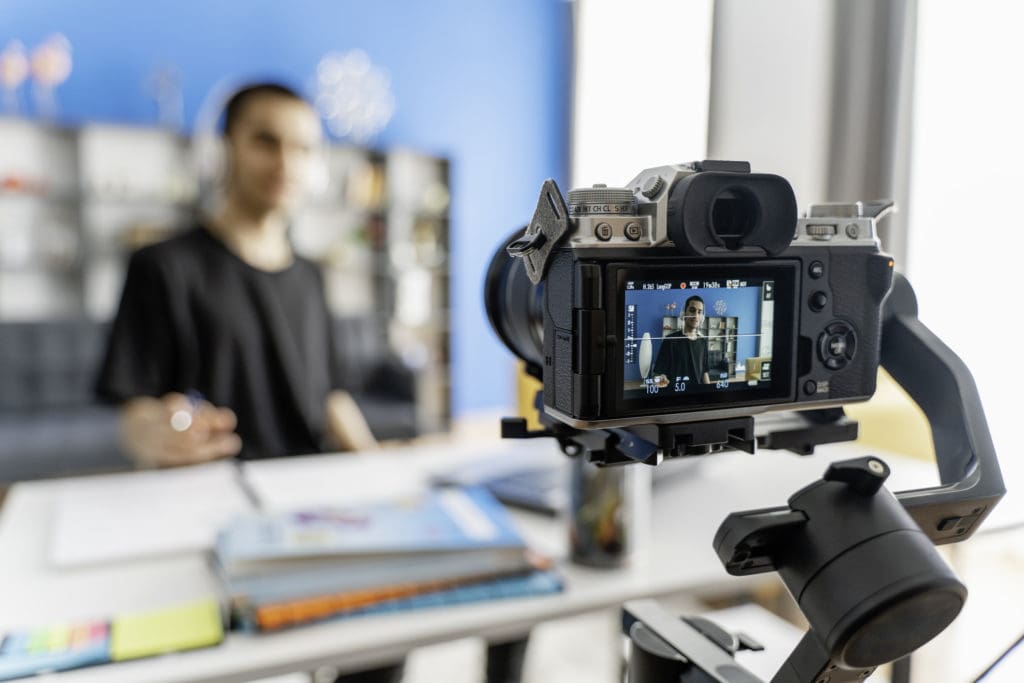
Industry Insights
Your Virtual Workshop Made Simple: What You Need to Know
Connecting with remote teams or customers is easy in the digital world. But if you previously relied on large in-person meetings and events, you might be ready to ditch the hassle and go completely virtual. Or just need help to make your virtual experiences wow your participants.
To run effective virtual workshops, you have a lot of nuances to consider, like what video platform you’ll use or what engagement tools you need. Still, with careful planning, you can build virtual workshops that your attendees engage with and enjoy.
This blog will discuss what a virtual workshop is, common challenges and additional tools to consider, and how you can ensure your event doesn’t flop.
What is a virtual workshop?

A virtual workshop is a live online interactive session or learning experience. Virtual events can be used for brainstorming or collaboration sessions, employee onboarding, team training, or virtual happy hours.
They’re budget-friendly, eliminating the cost of large conference halls, and provide a level of accessibility for your attendees.
Are in-person workshops a thing of the past?

People still want the ability to connect face-to-face and chat over coffee. But while in-person workshops are still relevant, it’s clear that most folks prefer an online session.
A virtual workshop is a lot less effort and stress for the attendees. They no longer have to spend hours traveling across time zones or staying in an uncomfortable hotel room away from their family. Attending an online event also allows them to keep their sweatsuit uniform, and nothing is more comfortable than working in your sweats.
A video conferencing tool can make virtual events a reality. Still, there is much to be aware of when transitioning to online or hybrid events. Keep reading to see how to best prepare for your virtual workshop.
Planning for a successful virtual workshop

Planning is vital for any meeting, and virtual meetings are no different. When you sit down to plan your virtual workshop, you must first define the goals for your event.
Are you teaching new employees something or mind mapping for a project? For your participants to be comfortable, productive, and able to absorb knowledge, you need clear road maps and desired outcomes from the start. Setting expectations and then sharing them up front keeps everyone on the same page from the get-go.
The same is true for your timeline. Scheduling your day helps with time management and helps participants focus on the meeting activities instead of wondering when their next coffee break is.
Other questions you might ask yourself during the planning phase could be:
- Is this an internal company meeting only you are leading?
- Will you have multiple presenters sharing information?
- Do I need breakout rooms or brainstorming sessions built into my schedule?
- Do I have to develop specific content for workshop exercises?
- Do I need to present slides for instructions or information?
Investing the extra time in your planning helps you determine what tools you’ll need, but it also helps set you up for a successful event.
The common challenges of a virtual workshop Videos

Even though virtual events appear simple and fun, are your workshop participants staying engaged, or are they preoccupied, wondering what they’re going to make for dinner? Distractions and daydreaming are presenters’ most common challenges, regardless of the event setting.
Skilled speakers have techniques they use to engage an audience in front of them. But, when you offer up a quip to a screen full of black boxes, it’s hard to judge their body language and know if your guests actually LOL. This is why finding the right engagement tools to keep people interacting is essential. We’ll talk about those in the next section.
Another challenge to combat is screen fatigue (sometimes called zoom fatigue). As you plan out your schedule, build in ample breaks and provide that schedule to your guests upfront, this can help their wandering minds. Because having a clearly defined agenda helps them stay focused.
While you want things to go smoothly, always have backup plans. Then a backup plan for that one. Jokes aside, you should prepare for a few worse-case scenarios for your virtual workshop. Schedule a tech test with presenters to ensure microphones, cameras, screen sharing, or other tools function seamlessly. And if they don’t, have some fillers planned to avoid that awkward silence while fixing issues.
Virtual workshop tools to consider

Workshops are the most efficient when everyone participates. In a virtual setting, the right visual and collaboration tools help when some may be less inclined to speak up during a meeting. Below are common types of tools you use in your workshops.
Video Conferencing
Remote work changed how people engaged with each other, and the rise of video conferencing tools empowered virtual face-to-face meetings. Most companies already use popular platforms like Zoom, Google Chat, or Slack Video Calls for internal needs. But when planning large-scale virtual events, you need a platform that offers more capabilities like attendance management or translation features. To weigh the pros and cons, check out this list of some of the best virtual conference platforms.
Audience Engagement
Engaging your audience is the best way to create a memorable event experience. You can’t force people to speak up. So if you want to break the ice, get the creative juices flowing, or entice your audience to join in the conversation, you need a mix of the right tools.
There are plenty of tools out there to use. But here are some examples of how you can engage your audience:
- Live polls
- Quizzes
- Q&A sessions
- Gamified content
With perfectly timed interactive moments, you’ll create a more conversational and valuable workshop or event.
Visual Collaboration
The most common and well-known form of visual collaboration comes in the form of a digital whiteboard. Virtual whiteboards open communication and allow participants to share input simultaneously and add sticky notes with ideas. Whiteboards enable people to make virtual sessions more focused and productive (and fun). They’re also easily accessible for everyone, even after the meeting. So when someone’s on a roll, they can continue when the session ends.
Why Your Virtual Workshops Should Be Professionally Produced Videos

With conference live-streaming technology, online workshops have come a long way. And as a result, workshop participants expect virtual workshops to be just as engaging as in-person events. Your guests may be less than impressed if the quality they expect isn’t met or your vision isn’t realized.
If you want your virtual workshop to run smoothly, consider hiring a professional. You can count on their expertise to ensure the virtual event platform, internet connectivity, AV equipment, collaboration tools, and other integrated technology runs efficiently.
Spot Content Studio partners with industry-leading broadcast facilities and highly reliable content delivery networks to constantly refine our live streaming offerings. With over 10 years of experience and our focus on broadcast quality streaming, if you have a webinar or virtual workshop you’d like guidance on, reach out to us.
